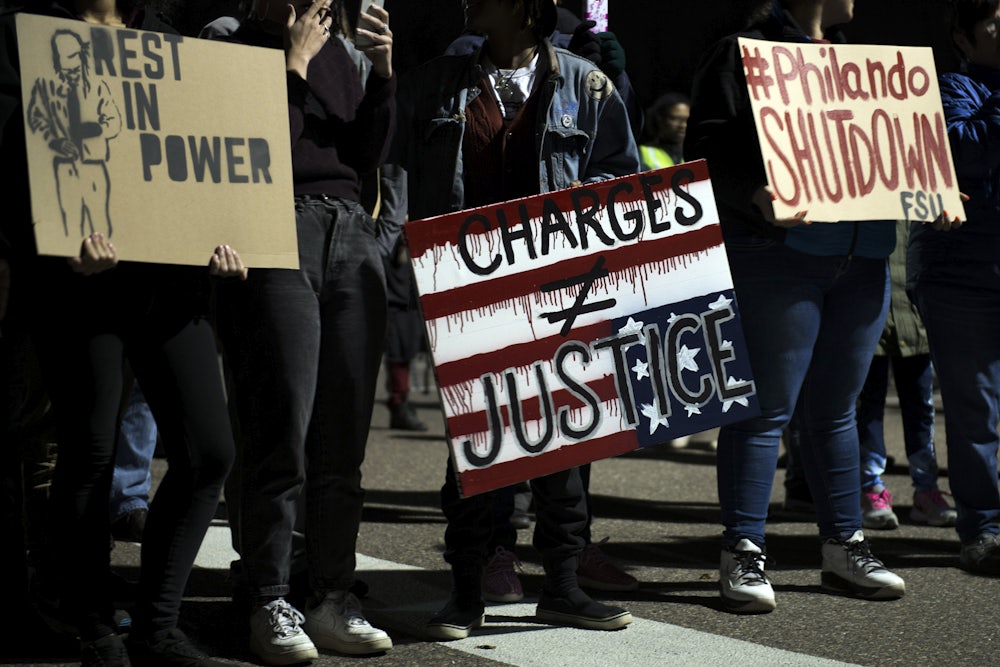Last summer, police officer Jeronimo Yanez shot 32-year-old Castile seven times during a traffic stop in Minnesota. His girlfriend, Diamond Reynolds, and her 4-year-old daughter were in the car. On Friday, Yanez was found not guilty of second-degree manslaughter. His lawyer, Earl Gray, had told jurors, “We have him ignoring his commands. He’s got a gun. He might be the robber. He’s got marijuana in his car. Those are the things in Officer Yanez’s head.”
Reynolds took video of the shooting and streamed it afterwards on Facebook so that the nation could bear witness. The video is heartbreaking: At the end, Reynolds’s daughter is heard reassuring her mother, “It’s OK, Mommy. I’m right here with you.” A dashboard camera from Yanez’s car revealed that Castile had calmly told the officer that he had a weapon in the car, which he was licensed to carry. Then, according to The New York Times, “Officer Yanez told him not to reach for the weapon, and Mr. Castile and Ms. Reynolds both tried to assure the officer that he was not doing so. Within seconds, Officer Yanez fired seven shots.” (The video does not show whether or not Castile was reaching for the gun.)
In a statement to the media, Castile’s mother, Valerie Castile, said, “My son loved Minnesota. He had one tattoo on his body and it was of the Twin Cities. My son loved this city, and the city killed my son and the murderer gets away.”
Yanez’s acquittal makes one thing clear: Video footage and audio evidence are no protection in a justice system that allows cops to act with impunity toward black people. Some reformers have called for cops to wear body cameras, but this case shows that, if we want justice for the Philando Castiles of this world, we’re going to have to do much more than that.
